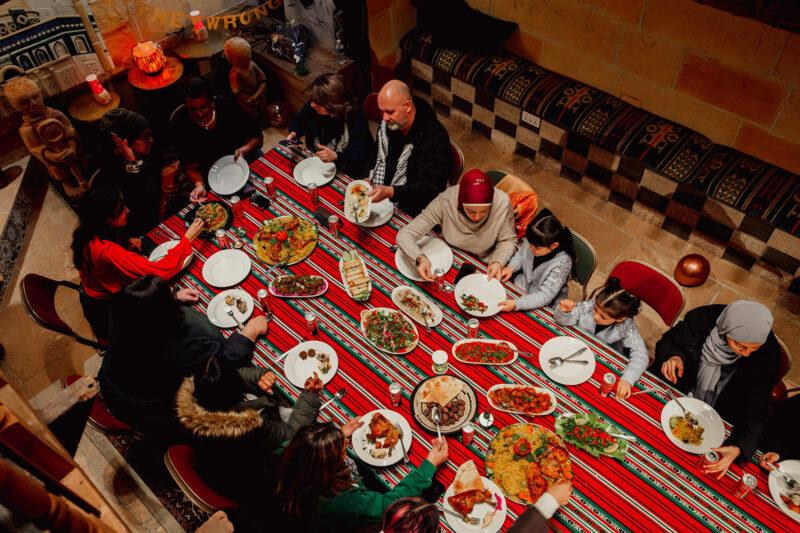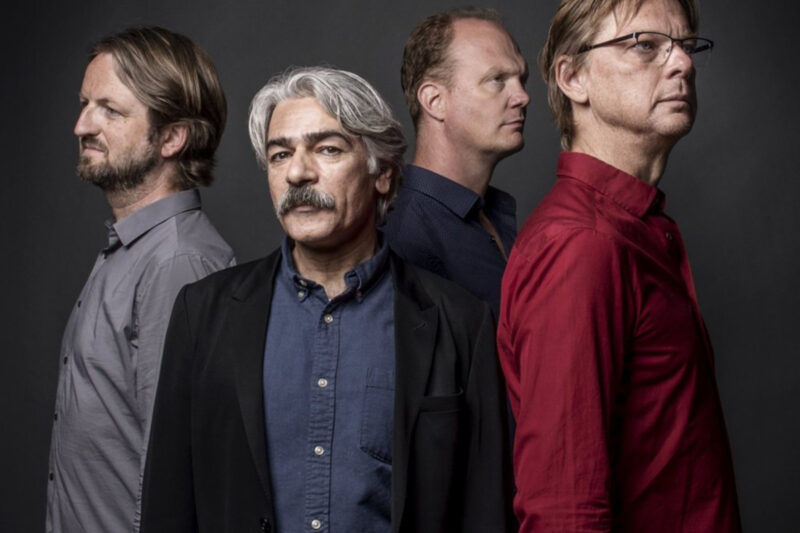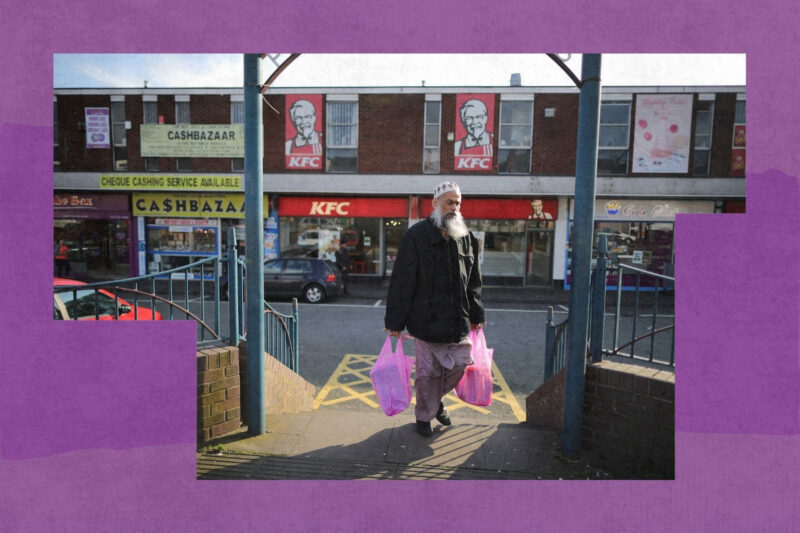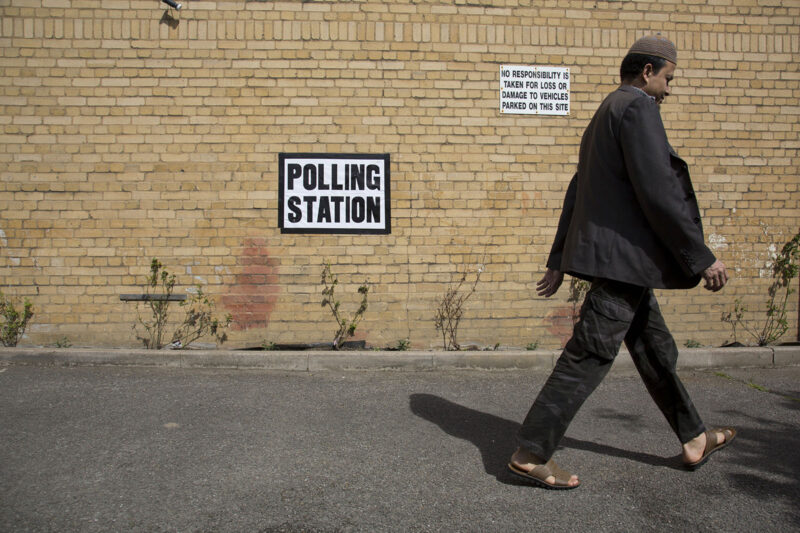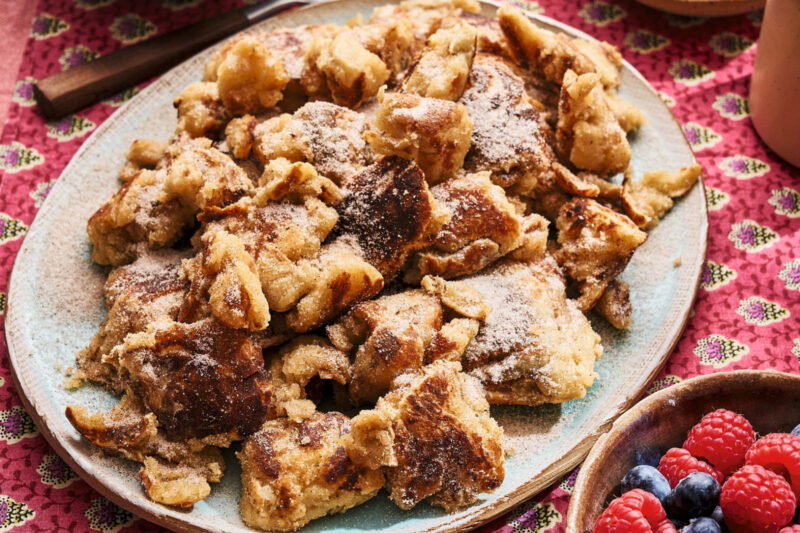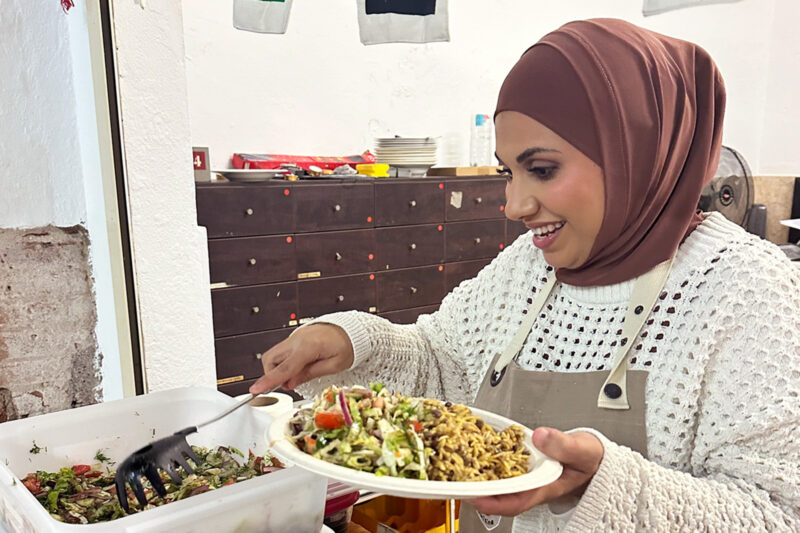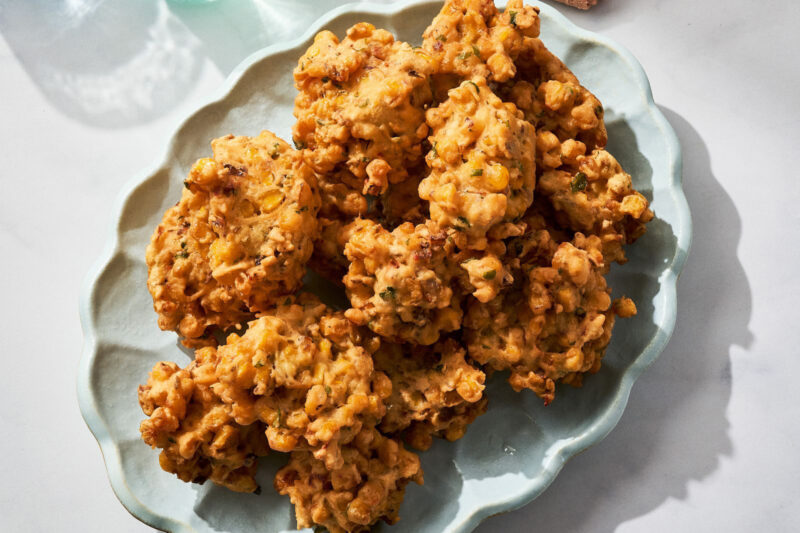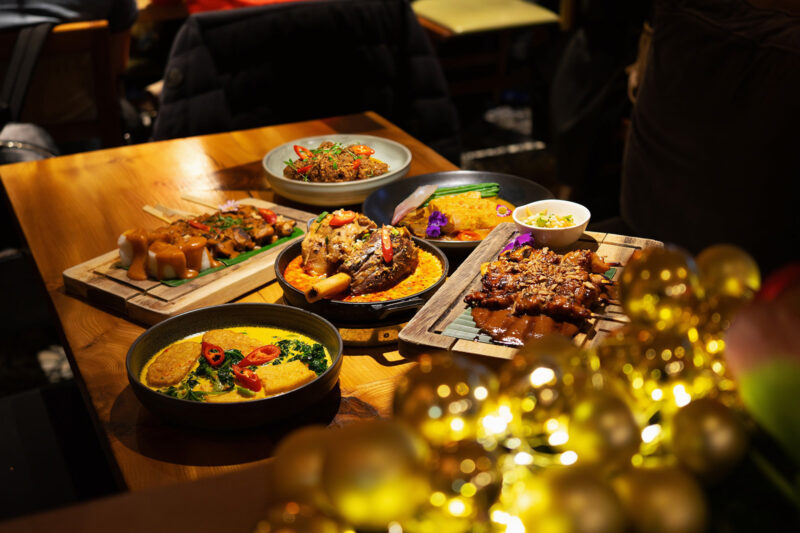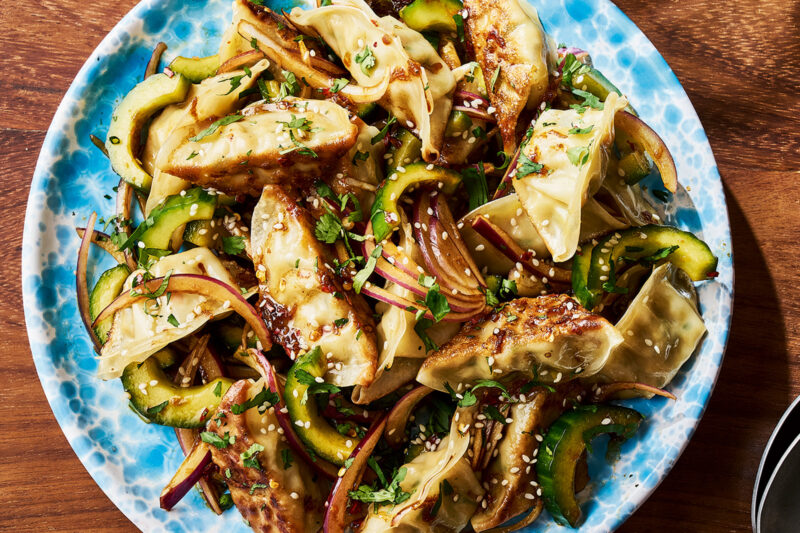A deep dive into the fragrant joy of halal ramen
A recent trip to Japan has completely transformed my ideas about the nation’s much-loved noodle soup
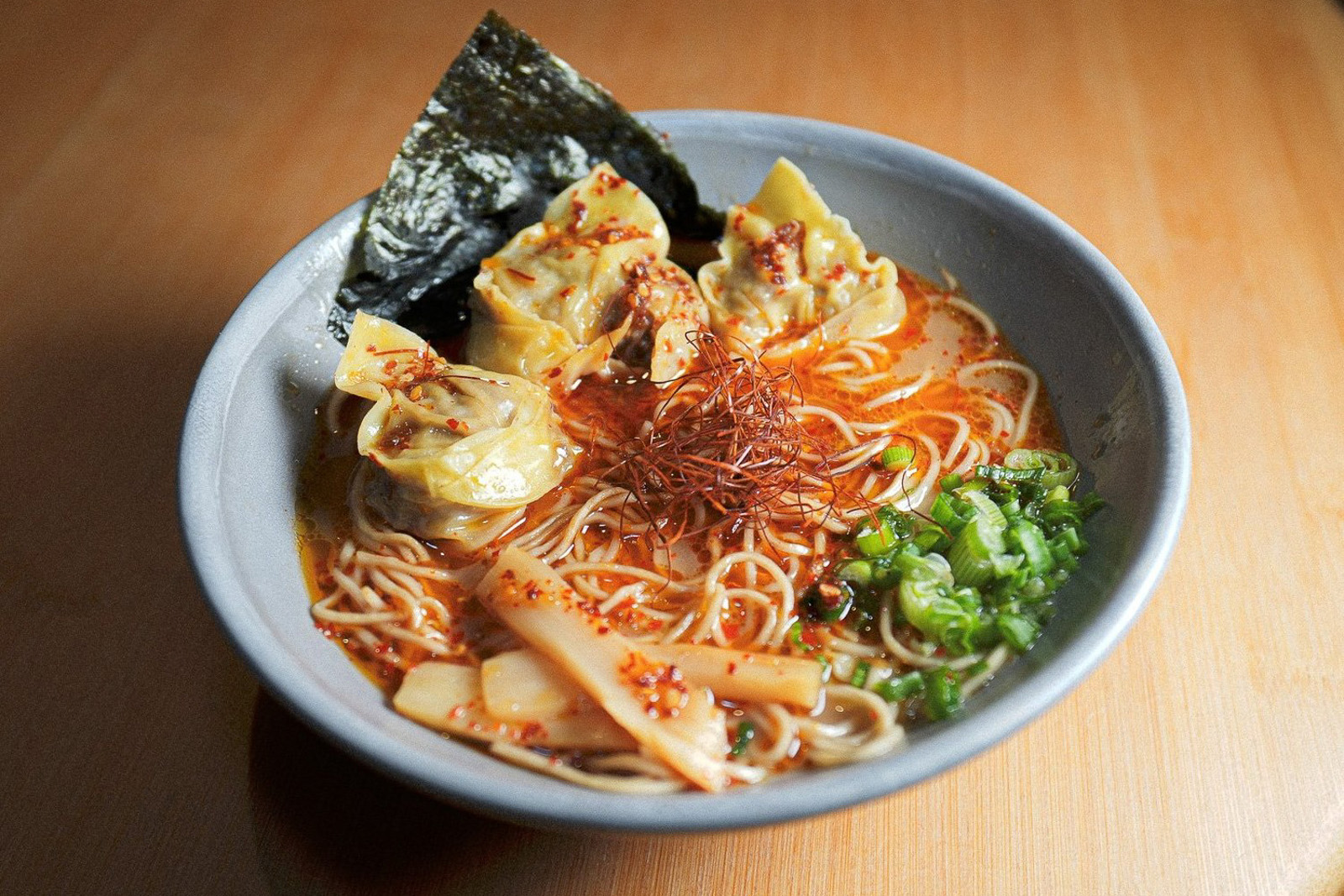
In April, I fulfilled a long-held dream by taking a two-week trip to Japan. From the cherry blossoms of Kyoto to Tokyo’s lush public parks, Osaka’s famous neon-lit streets and the thrill of the Shinkansen bullet train, I did my best to throw myself into every aspect of this vibrant and fascinating nation.
Before my departure I was full of excitement, but one thing did worry me. I had heard stories from friends and relatives who had travelled to the country and, owing to a scarcity of halal meat and a lack of fully vegetarian options on most menus, struggled to find any food they could eat.
Determined not to have a similar experience, I spent weeks scouring the Instagram profiles of Muslim travel influencers, adding halal restaurants to a specially made Google Maps list. Then I struck gold and stumbled across an account dedicated to halal food in Japan. Arriving in Tokyo, I discovered that Muslim tourism is a booming industry and I needn’t have worried. My hotel had even printed its own guide to the city’s halal eateries.
The first thing I noticed during my research was the preponderance of halal ramen shops. While I love Japanese cuisine, from sushi to udon, I had never really taken to the country’s iconic noodle soup. Given that ramen broth is usually made using pork bones, it has generally been off limits to me. Then an insipid seafood version ordered in a pan-Asian chain restaurant a few years ago really put me off.
Seeing how seriously the dish is taken in Tokyo changed my mind, though. In its halal iterations, a rich broth generally made with chicken is simmered for hours, if not days. Teamed with perfectly cooked noodles and toppings including wagyu beef, fried chicken, enoki mushrooms, dried seaweed, spring onions and sesame seeds, it’s a genuine joy.
My two most memorable bowls were a deeply spicy miso ramen topped with crispy fried chicken at Halal Ramen Shinkuju-tei in the teeming centre of Tokyo and a Michelin-recommended plant-based version from Vegan Ramen Uzu in the Koto City district, made with an oat milk-miso base and topped with broccoli, tomato and hot olive oil.
Returning to the UK, I experienced what I can only describe as reverse culture shock. I missed Japan’s extraordinarily efficient public transport, the tuna onigiri and fruit and cream sandos sold in every 7-Eleven store, and vending machines that dispense everything from hot coffee in a can to Super Mario memorabilia. Most of all, though, I found myself craving deep bowls of fragrant broth and toothsome noodles.
Halal Japanese restaurants are increasingly common in London, so finding ramen I could eat was easy. The real challenge was seeking out versions of the dish that pack the gastronomic punch I had become accustomed to.
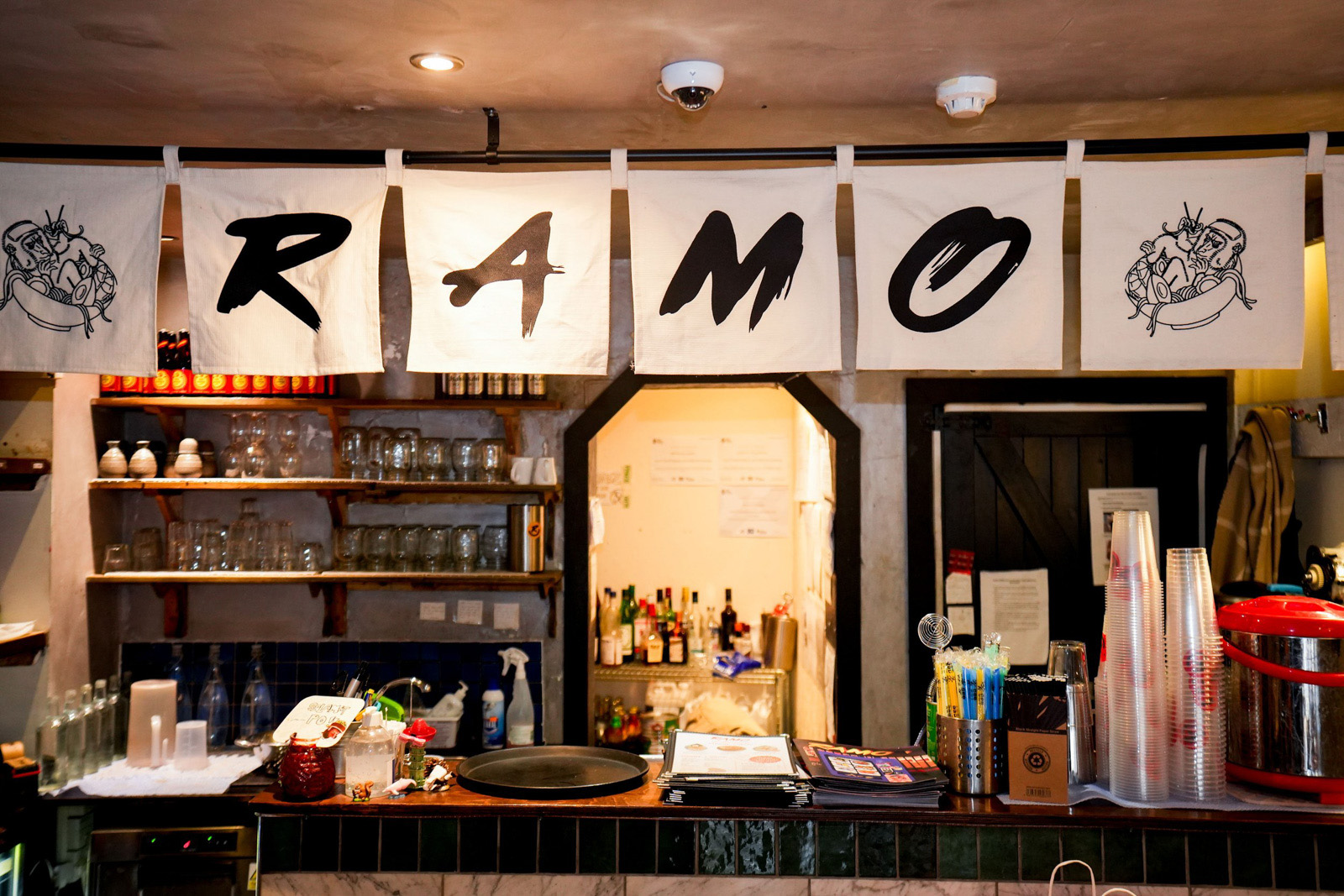
The Japanese-Filipino restaurant Ramo Ramen is part of the Maginhawa Group, which includes the pan-Asian diner Bintang and Mamasons ice cream. Initially opened in Kentish Town, north-west London, in 2018, it now has a second branch in Soho.
Inside, the long, narrow space and dimmed golden lighting took me straight back to Tokyo. Our server recommended the award-winning oxtail kare kare ramen. At £16, the rich, nutty broth had hints of sweetness and the meat fell apart at the touch. The depth of flavour was perfectly balanced by the starchy chew of the noodles. The chicken sopas ramen (£14) is a Filipino-inspired treat, featuring a creamy broth, black garlic and nori. The rest of the menu cried out for another visit, including a spicy seafood ramen with tamarind (£16) and a wonton ramen in a peanut and beef broth (£18). Fusion food doesn’t always work, but this is well worth your time.
Bone Daddies, a ramen bar with seven London branches including Bond Street, Victoria, Old Street and Soho, takes a more classic approach. In its Soho shop, paper lanterns hung from the ceiling as we perched on high stools, watching the busy street outside. The restaurant does serve pork, but it also offers halal chicken and the option of a chicken broth. Among numerous vegan and vegetarian dishes, including mushroom ramen (£14.10) and spicy miso ramen (£14.10), the tantanmen noodles (£15.10) are a winner, featuring a spicy bean paste broth topped with shiitake mushrooms, chilli and tofu.
Away from London, a longstanding favourite restaurant of mine is Yakinori Japanese Kitchen. This small regional chain has branches in Birmingham city centre, Selly Oak and Solihull, and recently set up shop in Bristol. Its extensive menu includes sushi, sashimi, katsu curries and a range of ramen based on halal beef and chicken stock. My picks include sirloin steak (£17.95) and spicy grilled chicken, topped with a soy egg and pickled ginger (£15.95).
The things I have most enjoyed about my plunge into the world of ramen are the infinite variety of flavours and textures that can marry together in one bowl and the way the dish is constantly being adapted, both at home and abroad. From Sri Lankan-inspired curry ramen at NikoNiko Mazemen in Tokyo to Ramo’s lamb keema version in London, I finally get why people will queue around the block for the latest experimental combination. In fact, I’ll probably now be one of them.
 Newsletter
Newsletter


